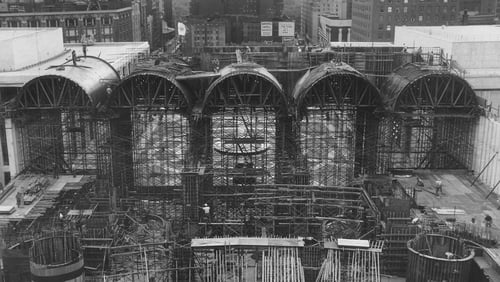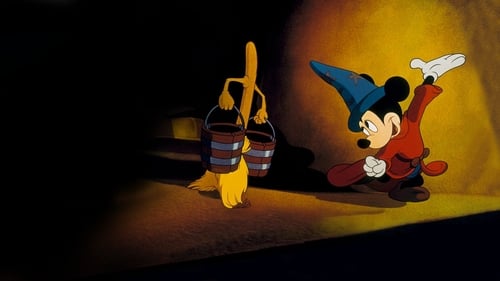Modeste Moussorgsky
Рождение : 1839-03-21, Karevo, Pskov Governorate, Russian Empire [now Russia]
Смерть : 1881-03-28

Music
Troubled and alone, a boxer moves in with his long-lost mother and autistic pianist brother — but must fit in with a family he hasn't known for years.

Music
In this documentary, award-winning filmmaker Susan Froemke explores the creation of the Metropolitan Opera’s storied home of the last five decades. Drawing on rarely seen archival footage, stills, and recent interviews, The Opera House looks at an important period of the Met’s history and delves into some of the untold stories of the artists, architects, and politicians who shaped the cultural life of New York City in the ’50s and ’60s. Among the notable figures in the film are famed soprano Leontyne Price, who opened the new Met in 1966 in Samuel Barber’s Antony and Cleopatra; Rudolf Bing, the Met’s imperious General Manager who engineered the move from the old house to the new one; Robert Moses, the unstoppable city planner who bulldozed an entire neighborhood to make room for Lincoln Center; and Wallace Harrison, whose quest for architectural glory was never fully realized.

Writer
Kent Nagano superbly masters the challenges presented by this score, shapes the dynamics with subtle intensity, and casts the score in a mellow glow. As Marfa, the spurned lover of Ivan Khovansky‘s son Andrei, Doris Soffel unfolds such a rich palette of sonorities, from the pathos of the lower ranges to shaded discant heights, that “one is tempted to speak of a Russian mezzo”. The final chorus, which Mussorgsky did not compose, is played in the orchestrally transparent version of Igor Stravinsky – the third great Russian composer who contributed to making “Khovanshchina“ a timeless, gripping stage work. With his stripped-down sets and historicising costumes, director Dmitri Tcherniakov, one of the new voices of contemporary Russian theatre, builds a bridge to the political present. A lesson in history and music!

Music
Kent Nagano superbly masters the challenges presented by this score, shapes the dynamics with subtle intensity, and casts the score in a mellow glow. As Marfa, the spurned lover of Ivan Khovansky‘s son Andrei, Doris Soffel unfolds such a rich palette of sonorities, from the pathos of the lower ranges to shaded discant heights, that “one is tempted to speak of a Russian mezzo”. The final chorus, which Mussorgsky did not compose, is played in the orchestrally transparent version of Igor Stravinsky – the third great Russian composer who contributed to making “Khovanshchina“ a timeless, gripping stage work. With his stripped-down sets and historicising costumes, director Dmitri Tcherniakov, one of the new voices of contemporary Russian theatre, builds a bridge to the political present. A lesson in history and music!

Original Concept
A one-off production of Boris Godunov was staged by Andrei Konchalovsky at the Teatro Regio in Torino in 2010, with Orlin Anastassov in the leading role and Gianandrea Noseda conducting the Orchestra del Teatro Regio.

Music
A one-off production of Boris Godunov was staged by Andrei Konchalovsky at the Teatro Regio in Torino in 2010, with Orlin Anastassov in the leading role and Gianandrea Noseda conducting the Orchestra del Teatro Regio.

Writer
The libretto is by Mussorgsky himself and takes the eponymous “romantic tragedy” by the celebrated Russian poet Alexander Pushkin as its starting point. Boris Godunov is Mussorgsky’s masterpiece and his only complete opera. It’s a vast sprawling tapestry of Russian life, which centres on the Russian people – represented in the opera by a large and powerful chorus – rather than on the title figure. The staging was produced at the Gran Teatre del Liceu in Barcelona and is based on the original version of the score.

Original Music Composer
The libretto is by Mussorgsky himself and takes the eponymous “romantic tragedy” by the celebrated Russian poet Alexander Pushkin as its starting point. Boris Godunov is Mussorgsky’s masterpiece and his only complete opera. It’s a vast sprawling tapestry of Russian life, which centres on the Russian people – represented in the opera by a large and powerful chorus – rather than on the title figure. The staging was produced at the Gran Teatre del Liceu in Barcelona and is based on the original version of the score.

Writer
Modest Mussorgsky's opera in prologue and four acts is performed by the Kirov Opera with performances from Olga Borodina, Alexei Steblianko and Sergei Leiferkust. Boris Godunov has obtained the throne of Russia by murdering the rightful heir Dmitry. An old monk, Pimen, witnessed this, and convinces his apprentice Grigory to avenge Dmitry's death. In the following years Grigory poses as Dmitry, raising an army against Boris, who is now convinced that he is being punished for the murder. Filmed in Russia during the collapse of the Soviet Union, this particular production of Mussorgsky's 1872 tale of political upheaval is considered a highly unique and historical moment in opera. Robert Lloyd stars in the title role of Boris Godunov.

Writer
Mussorgsky's quintessential Russian opera is captured live on stage in this performance by the Bolshoi Opera featuring Rimsky-Korsakov's revised vision and starring Evgeny Nesternko and Vladislav Piavko.

Writer
Опера Модеста Мусоргского в редакции Николая Римского-Корсакова, записанная в 1978 году в Большом театре.

Original Music Composer
Ах, эти блестящие, мрачные Средние века… Прекрасные принцессы, сладкоголосые трубадуры, невменяемые рыцари и порожденные сном разума легендарные чудовища. Кстати, о чудовищах, в одном королевстве завелся монстр по имени Джабервоки. И вот, нанося огромный урон народному хозяйству, он безнаказанно терроризирует округу — никто не может его победить. К счастью, храбрость в те годы встречалась чаще, чем мозги. И вот, в поисках богатства и почета, на монстра выезжает отважный рыц… простите, бондарь Деннис! То и дело попадая в нелепые положения и анекдотические ситуации деревенский простак торит свой загогулистый путь к Славе. Охота на Джабервока началась!

Music
Необычайный, поражающий воображение мультконцерт, небывалое ранее единение музыки и мультипликации. Дисней и знаменитый дирижер Леопольд Стоковски решили воспроизвести на экране фантазии, возникающие в сознании людей при прослушивании музыкальных шедевров.Картина состоит из 8 классических композиций, проиллюстрированных сюжетными инсценировками и ритмичными абстракциями, предвосхищающими чудеса компьютерной графики.












